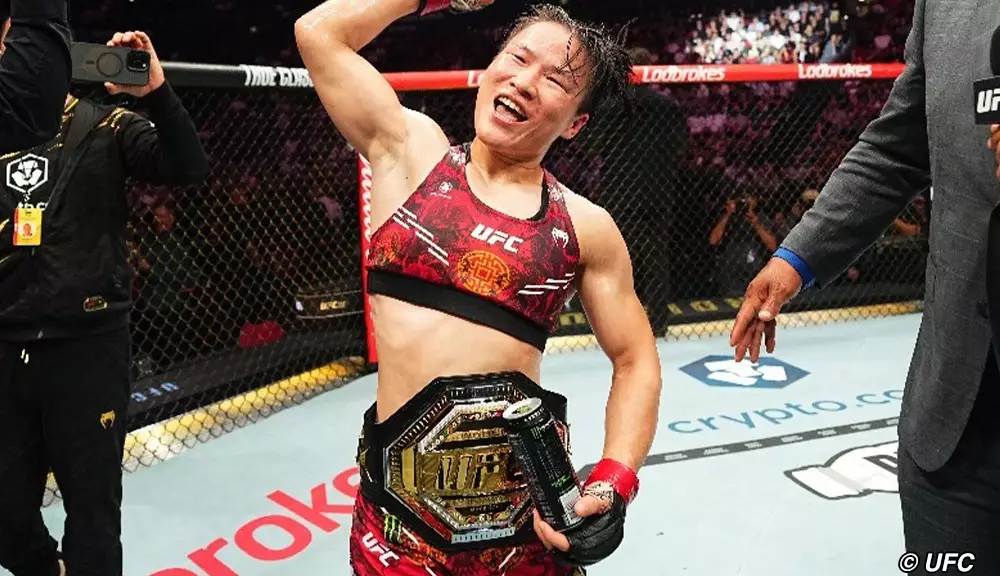In the landscape of mixed martial arts (MMA), unifying champions from different weight classes creates a wave of excitement among fans and pundits alike. The prospect of a showdown between Zhang Weili and Valentina Shevchenko could potentially redefine the women’s divisions as we know them. Weili, the reigning champion of the UFC women’s strawweight division with a record of 26-3 (10-2 UFC), has expressed a desire to challenge Shevchenko, the undefeated and formidable flyweight champion. However, the looming question is whether they can synchronize their fighting schedules to facilitate this sought-after bout.
Weili emphasized the importance of timing, stating, “Everything is about timing.” At the recent UFC 312 post-fight conference, she acknowledged that for the superfight to come to fruition, both champions must be available at the right moment. This aspect of MMA dynamics is often overlooked, as fan enthusiasm can sometimes cloud the logistical complexities involved in high-stakes matchups. With both fighters currently defending their titles, the scheduling becomes crucial. The call for a superfight is not merely fan-driven; it represents an intersection of two careers at their peaks, willing to face each other for both pride and historical significance.
Zhang Weili’s recent victory over Tatiana Suarez at UFC 312 not only reaffirmed her status as champion but also ignited debates about the best female fighter across all weight classes. Winning by a decisive unanimous decision, Weili handed Suarez her first professional loss, showcasing her prowess and skill set in the octagon. Acclaimed for her performance, Weili embodies the progression of women in MMA, highlighting the competitive nature of the sport. “Many people said I never fought such a good grappler before,” she reflected, appreciating the opportunity to showcase elite-level female fighting.
Despite the rampant discussions surrounding pound-for-pound rankings, Weili’s focus remains unmovable. “To be honest, I don’t really care who’s pound-for-pound (best) fighter. It doesn’t really matter,” she asserted. This attitude reflects a steadfast commitment to personal improvement over public validation, a sentiment often echoed among the most successful athletes. Her priority lies in honing her skills and elevating the standard for women in the sport, which speaks volumes about her character and determination.
In addition to her personal ambitions, Weili expresses a profound respect for her fellow competitors. By acknowledging her opponent’s wrestling capabilities and the significance of heavyweight bouts, she emphasizes a unity that transcends rivalry. “I really appreciate Tatiana in taking this fight, and both of us showed how good female fighters can be,” she remarked. This perspective not only elevates the participants but highlights the rapidly growing recognition of women’s MMA, urging a reevaluation of its competitive landscape.
While the MMA community awaits a potential Weili versus Shevchenko face-off, the narratives surrounding both fighters grow richer. Their journeys, characterized by a constant quest for excellence, transform the canvas of women’s MMA into an inspiring saga filled with promise and opportunity. The path to the superfight remains uncertain, but the passion and resolve from both fighters cannot be denied.

